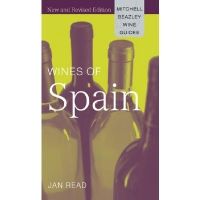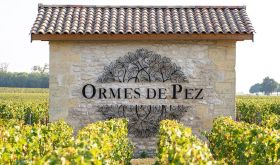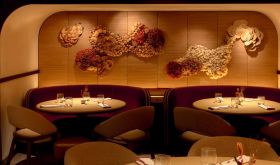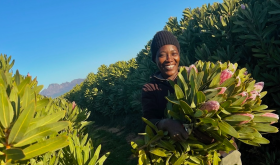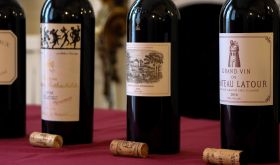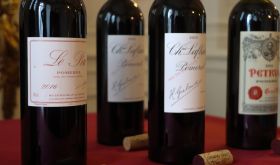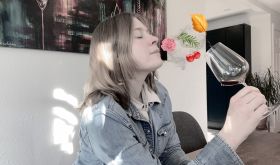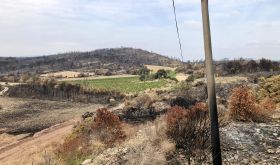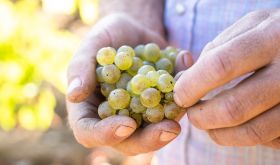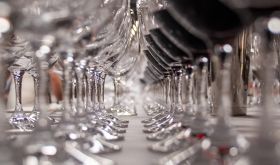When reporting the loss of John Radford recently, I glibly referred to a fellow JR wine writer. But of course there was another, one who considerably pre-dated John Radford as a Spanish specialist based in the UK. As his son Carlos writes below, Jan Read was a man of very many parts indeed – and was notable even when I started writing about wine in the mid 1970s for his previous accomplishments, and for his being half of a writing and travelling partnership with his Spanish wife Maite.
Anyone who became interested in Iberian wine before around 1985 will almost certainly have depended heavily on Jan Read's scholarship. He was the opposite of brash but had a scientist's insistence on getting the facts right.
Carlos Read writes:
Jan Read passed away in the wee hours of 29 November 2012 at the grand old age of 95.
Known in the world of wine as the first pioneering English authority on Spain and Portugal, by virtue of The Wines of Spain and Portugal, published by Faber in 1973, he would go on to write a plethora of further seminal books throughout the 1980s which effectively put the wines of both countries on the map. He was for two decades the undisputed critical Hispanic leading light, also – with his friend Hugh Johnson – writing the first ever book on Chilean wines in 1988, and in addition writing numerous articles for The Times, The Guardian, The Scotsman, House and Garden, Harpers and Queen, as well as vinous publications such as Decanter, Comer y Beber (Barcelona), The Quarterly Review of Wines (US), and Epicure (Hong Kong).
Further, with his beloved wife Maite Manjón – in turn the first in this country to write Spanish and Portuguese cookery books – he co-wrote a series of 'gastro-historic' tomes such as Paradores of Spain (1977), Flavours of Spain (1978) and Catalonia: traditions, places, wine and food (1992), though curiously their most successful was the immensely entertaining The Great British Breakfast of 1981.
Wine, however, was just the surface or perhaps, more accurately, Jan's latter phase, for this quietly spoken and gently encyclopaedic man had already had at least two if not three previous careers.
Brought up in St Andrews, the son of distinguished scientist and Fellow of the Royal Society Professor John Read, the first was scientific: initially a physics lecturer at Sheffield University, he was later seconded to the government as a research scientist during World War II. Based at Lancaster University, here he was engaged primarily on 'stretching' explosives and developing the most economically efficient camouflage techniques (as well as quietly producing his own gin!) while his brother Arthur was at Bletchley.
His real passion, however, was the cinema – his first film, Ad Vitam (1937), now in the Scottish National Archive, (http://ssa.nls.uk/film.cfm?fid=1711), a silent, 30-minute black and white documentary tracing the history of St Leonards School in St Andrews – so with the War over, he gained a Commonwealth Fund Fellowship to study cinematography in the US, where he worked for Louis de Rochemont at 20th Century Fox and afterwards for Fritz Lang at Universal-International.
Returning to Britain his first full-length script was The Blue Lamp (1950) made by Ealing Studios and written in the semi-documentary style pioneered by his mentor Louis de Rochemont; and he would go on to write a further dozen or so films including White Corridors (1951), and Grip of the Strangler (1958), culminating in Jason and the Argonauts (1963) and First Men in the Moon (1964).
By this point, however, with the domestic film industry in decline, Jan switched his efforts primarily into the blossoming television industry and wrote some hundred scripts for series such as Robin Hood, The Four Just Men, Dr Finlay's Casebook, Sherlock Holmes, Danger Man, and Man in a Suitcase.
By the early 1970s, however, and with one book already under his belt – History for Beginners (1960), a collaboration with his great friend and Spanish national treasure cartoonist Antonio Mingote – Jan 'became interested in writing something more permanent in the shape of books' and these took the form of largely untouched Spanish themes, not least because he married Maite in 1956 and spent long periods in Spain ever since.
His key works here were The Moors in Spain and Portugal (Faber 1973), War in the Peninsula (Faber 1977), and The Catalans (Faber 1978).
Jan had been semi retired for some years in his beloved St Andrews but was persuaded to write his autobiography – Young Man in Movieland, which was published by Scarecrow Press in 2005.
He is survived by his wife Maite and their son Carlos of London-based Spanish specialist wine importer Moreno Wines, now with Wine Traders.


